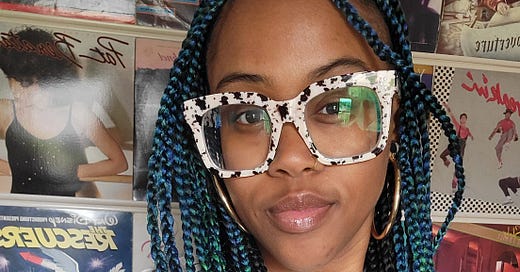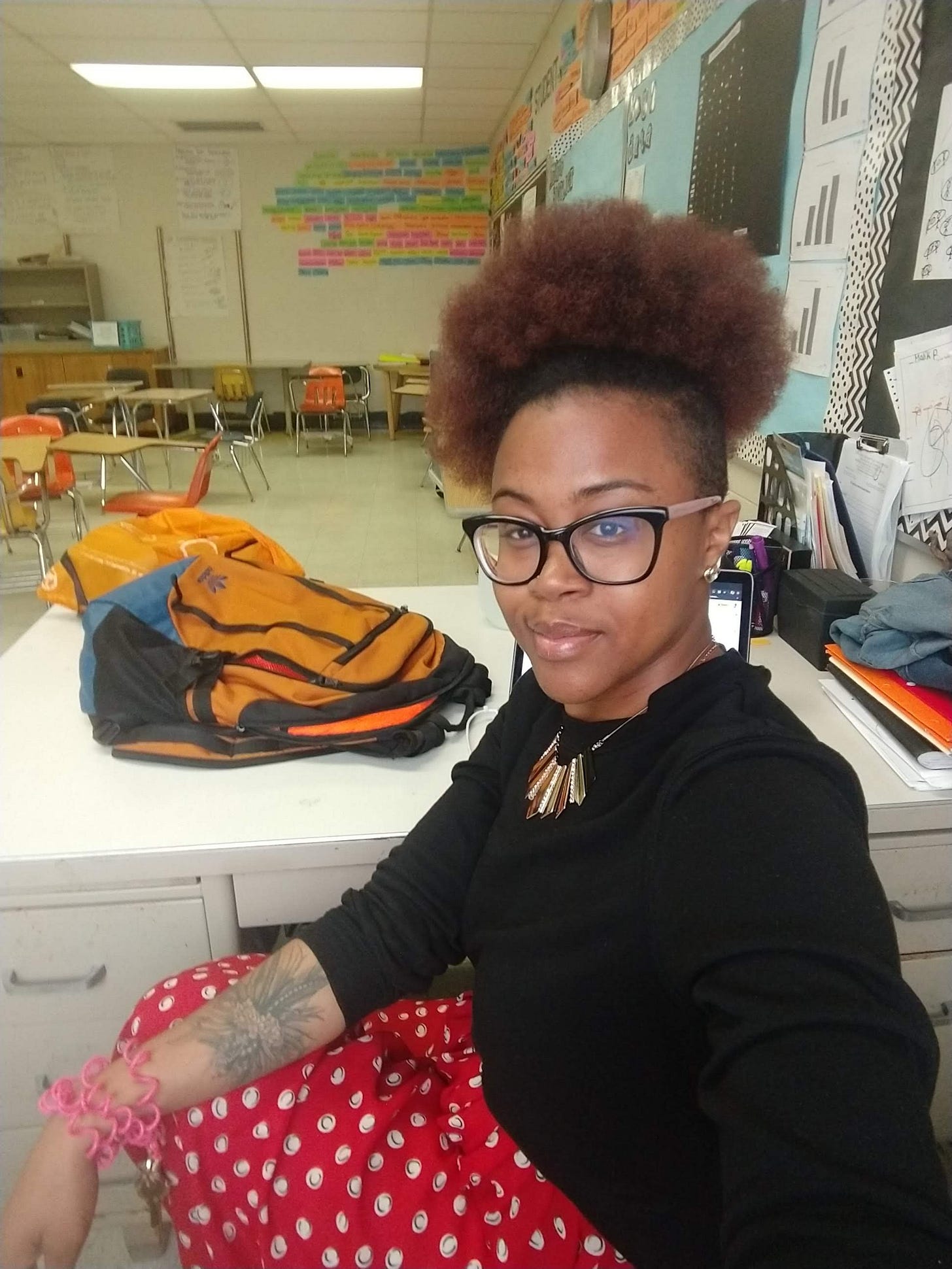So, I think we have a name for this publication: Deconstruction and Blerdom. How did I come to this name? Simply put, it's my journey and who I am.
While I was privileged to live in a predominantly Black neighborhood and went to public schools where most of my teachers and staff looked like me, and I gravitated to Black film and TV, I was still profoundly impacted by the white-washed American curriculum. Most of the authors we read were white. The notable names taught in each subject were white. Whenever black excellence was expressed, it was always in comparison to White counterparts, not who we can be as individuals. No matter how hard or how strong the influence was at home, it could not eclipse the amount of influence I was getting from the school systems. My favorite books were Jane Eyre ( I still hope to own an early edition of it, preferably where it still says 'written by Currer Bell) and The Merchant of Venice by William Shakespeare. I saw British literature as the pinnacle of excellence. I believed everyone needed to aspire to that specific genre and style of writing, and I went into college with that mentality.
My alma mater, an HBCU in Southwest Pennsylvania, initially continued that mindset. For most of my matriculation, my HBCU used Chaucer, Shakespeare, Woolf, Dickens, Wordsworth, and Coleridge to shape our literary minds. The juxtaposition of this couldn't have been more hysterical. Imagine going to an institution that touts its achievements within the Black community and the ideals of Sankofa, only to find it hasn't managed to integrate the voices of the Black community into its curriculum. We were indirectly taught that 'to be the best, we had to be the best at their game.'
Thankfully, these changes have occurred within the English department. After a seven-year break from college, I returned to a wholly changed university. In 2016, the campus is part of the online community that has been inundated with videos of police officers perpetuating violence against Black bodies. These young students turn to the university and demand a change in curriculum across the campus. Specifically in the English Department, they question why we focus on these typical Western classics, and most of our introduction to the breadth and depth of Black Literature is in the 300-level Black Literature course. The department acquiesced, and that final year at Lincoln University forced the most growth for me as a writer, reader, scholar, and any amount of schooling combined. I'll be honest: deconstructing anti-Blackness at a Black university in a community with Black people doing the same thing will always hold a sacred spot in my heart. It felt safe. It felt like love. It felt like home.
One of the comics that helped me on this path was Moongirl and Devil Dinosaur in the Black literature class. I had a professor who wanted to use the text but decided not to because it technically wasn't a Black book (a Black book is a book that centers Black people AND is written by Black people). The comic follows a little girl, Lunella Lafayette, who is one of the most intelligent people in the Marvel comic universe, and her dimension-traveling Devil Dinosaur in New York City. Even though this professor decided not to use the text, I wanted to read about this little girl who was too much like me: a smart Black girl from NYC. I loved the comic, even sharing it with my kids and gently forcing them to read it. But that didn't tamp down the questions I had. By the time I got to reading Moongirl and Dinosaur, I had already done a lot of unpacking of my anti-Blackness, so while I appreciated the representation, I had questions about just how authentic it was. Lunella is a Black girl in NYC, so while they did the light work of showing her in a bonnet and doing her hair, there was nuance in her experience as a Black New Yorker. There wasn't much about Lunella that was directly impacted by her being a Black kid in New York City. These questions sparked a desire to find comics and, eventually, books that depicted authentic, accurate, and diverse representations.
For the last eight years, I have spent my free time browsing library and bookstore shelves, exploring the Black voice and how it speaks to its people. I have read how it, too, has been shaped by white supremacy and its toxic systems. With its dynamic, polyphonic overtones, it simultaneously sings the songs of our tumultuous history and the brightness of our futures. That is something I've never gotten in any other works of literature. The brightness of the Black future. I've found that I enjoy reading about Black futures in outer space, Black people with supernatural powers, and Black folx surviving horror. It shouldn't have been a surprise, seeing as my favorite films and TV shows center on the fantastic. These speculative fiction stories force readers to reimagine our world in ways many other genres cannot fathom. Reading these works and using them as models for immediate change and seeds for future growth has been amazing.
This publication, this social media handle, was never in my wildest dreams. I honestly started my Instagram account to keep myself accountable for my reading while I wasn't in school. I always had a goal of returning to the classroom as a professor, and I wanted to ensure that when it happened, I was ready. Before the pandemonium, I was prepping my graduate application to the University of Delaware PhD program in English Literature, focusing on Black speculative fiction in comics. It is wild how the pandemic has changed so much. Before you believe I have given up, fear not. I'm the same one with seven years between my junior and senior years of college. I know my path is the road less traveled, and I'm better off for it. I'll be there one day…when, and I can't stress this enough, someone else pays for it. Until then, I've found other ways to talk to Black Speculative creatives. I've found other ways to be in community. I've found other ways, and I'm better for it.
So, yes, I wanted to become a Folgers scholar. While there is nothing inherently wrong with that, I just was doing it for some concerning reasons that needed to be unpacked. Fortunately, I had the space to unpack and deconstruct, and I know I'm still not done. In fact, I'll never be done. White supremacy is a nasty web that is successfully integrated into every facet of life in America. I will spend my entire life deconstructing its influence and fighting to maintain my freedom from it. I will spend my whole life envisioning and fighting for a future for my community where we are truly free, even if it's light years away on spaceships and other planets.





Thank you for sharing this. I opened my mind this morning and this breath of fresh air filled my mind. I look forward to reading more from you Dr. Parks (can I just put that out there in the universe).
Thank you for sharing your story and allowing us to be in the journey with you. And Great name!